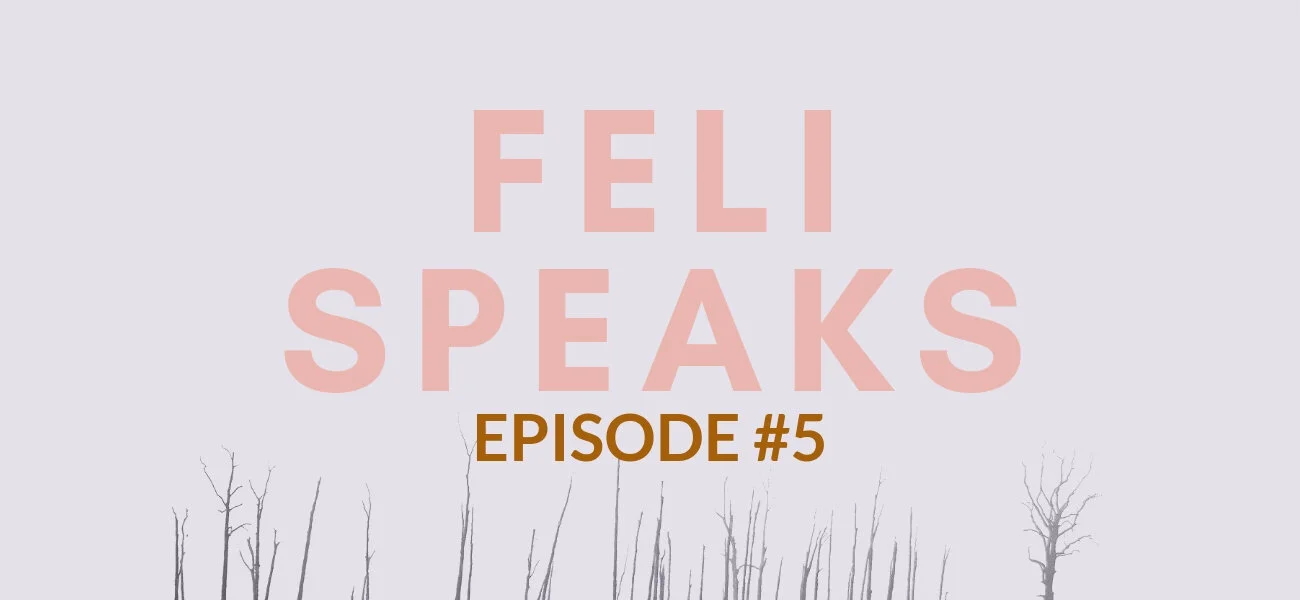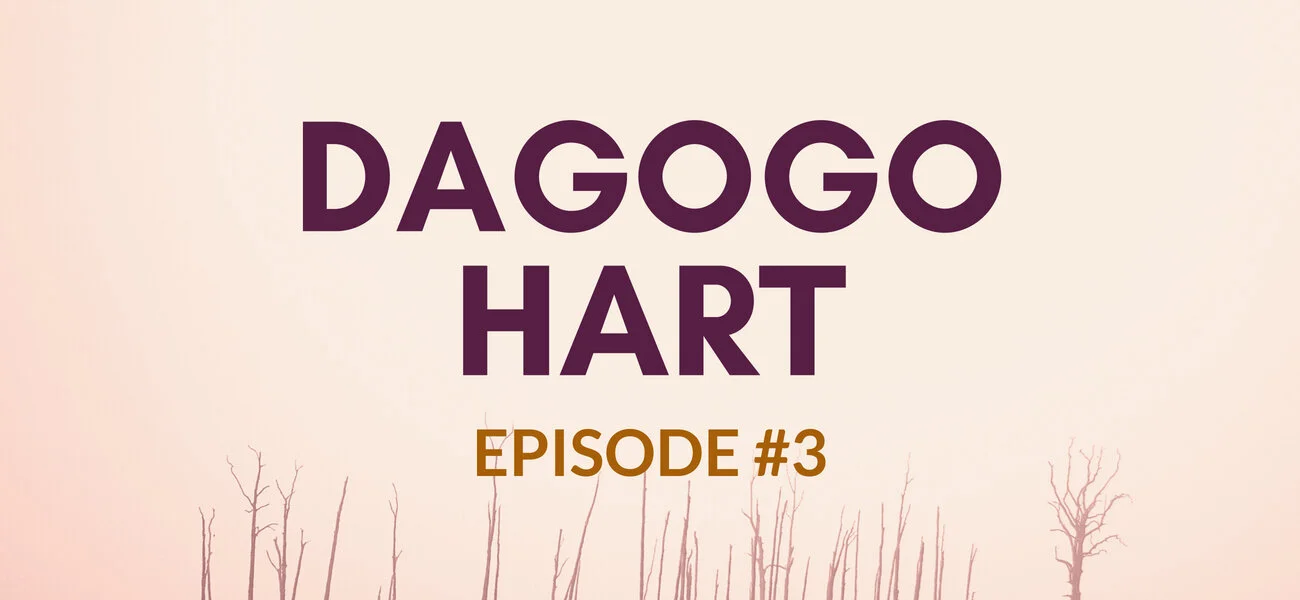LADY NA MASTER & THE SYNAPTIC ROOM
Adam Lawler speaks with spoken word artist FeliSpeaks about the creation and the idea behind her solo show Lady Na Master & The Synaptic Room in the Smock Alley Boys’ School.
Credit: Smockalley.com
It is an oppressively hot day in windswept Dublin. Dead heat is disturbed by walls of wind as people mill about, and music and laughter spill into the streets from crowded bars. The latest issue of GCN, featuring a picture of Maser’s half-covered heart mural, sits in the windows of cafés across from the mural itself in Temple Bar. Today Smock Alley Theatre is the eye of this summer storm.
Boundless & Bare meets Felispeaks, aka Felicia Olusanya, in the cavernous lobby, brimming with quiet energy and holding a blank sheet of paper which she briefly mentions is “for a letter”. We go through to The Boys’ School, encircled by wooden walkways leading down to the main stage space, which is provided with an extraordinary backdrop by an ancient church wall and where director David Francis Moore is waiting. This strikingly decked-out space with white-faced masks hanging from the ceiling – like eerie spectators – is where we sit to chat about Lady Na Master and the Synaptic Room.
Lady Na Master and the Synaptic Room has come at no greater time than in the wake of a massive social upheaval and change in political climate.
“I hope it helps people to explore their psyche,” FeliSpeaks says on her hopes for the work. “To get to that space where you explore binding somebody or being bound you’ve got to go into your mental space and that can be quite difficult when things aren’t black and white for people. I hope it creates conversation and helps your friend or your neighbour or whatever it is that sees the show to discuss those issues and then through those issues, lead to something else. A chain reaction of freedom is what I hope.”
Moore agrees. “I think it’s a very honest and a very raw work,” he says, “and I hope that the people who see it, I hope — all we can do is hope — somehow walk away and think of ideas of being bound and being aware that you’re binding somebody and you’re not even recognising that you are, and recognising that you’re binding yourself. It’s very heavy, but there’s hope and there’s light and maybe it’s empowering people to liberate themselves.”
It has been in the works since last year, but Lady Na Master and the Synaptic Room has come at no greater time than in the wake of a massive social upheaval and change in political climate. It is an evocative performance artwork surrounding themes of bondage — personal, physical, societal — and could not be more significant in a post-Repeal landscape.
“We didn’t actually set out to generate conversation about anything in particular,” says the director, David Francis Moore, but he admits that when looking for artists to take part it was important to consider themes and topics that they look at and the relevance of their work to society and culture.
FeliSpeaks is no stranger to presenting a multidisciplinary performance arts show. Last month was the debut of See True, a poetic dramatic display between two Afro Irish Millennials, featuring spoken word poetry, music, dance and fashion. “If I didn’t have See True, and have the lights and dancers and costumes and getting to that mind frame, I think this would’ve been a much harder process. I was kind of doing both at the same time and then ‘See True’ happened and I was like ‘oh, potential!’”
Time has slipped away and before we know it there are twenty minutes to opening. FeliSpeaks excuses herself to get ready, and to write her letter. Moore cryptically says that the show begins from outside. At 3pm the doors to the matinee open and the gathered audience is ushered from the lobby into the Boys’ School theatre in single file, descending the wooden walkway to find FeliSpeaks stood in the middle of the stage, eyes closed, face seeming peaceful yet pained.
She moves about the stage interacting with the items of clothing hanging from the ceiling and delivering weighty existential monologues
One by one we stretch the ropes attached to the bars on either side of the stage and loop them over her head and down to her waist before we sit down to behold the sight; a woman in black bindings splayed out like spiders’ legs. The audience is hushed long before the performance begins, and it is hard to tell whether this is down to politeness or from this initial interactive element having caught them off guard. A male voiceover makes clear that this is a woman born into bondage without any sense of societal norms, and that is when green text flashes onto the wall and FeliSpeaks opens her eyes and speaks:
“Is this the way I should feel?”
She delivers an immersive soliloquy straining against her binds, describing her feelings of entrapment, fear and rage, before having the ropes removed. She moves about the stage interacting with the items of clothing hanging from the ceiling and delivering weighty existential monologues, the ease with which she does so belying the work it took to write and learn pieces twice as long as the average spoken word poem. The music — ambient with the odd shade of garbled vocals — effectively develops an uncanny feeling of a primordial murk from which structure and cognition emerge.
At various points FeliSpeaks’ voice pierces the atmosphere via speakers to give some context to the more oblique poetry in the form of illuminating anecdotes, delivered seemingly unrehearsed and dotted with hesitations. She gradually puts on the shoes, a bell-shaped dress, butterfly wings, and a wolf mask, a ridiculous combination until her voiceover enters to explain that the wings sprung from her memory of a butterfly mysteriously appearing in her room, and the mask from her desire to both subvert and embrace the trope of women as wolves. These voiceovers gently connect the ideas in the work with a human counterpoint to the cold atmospherics and intense poetry, much-needed as the show progresses to touch on weighty topics such as how different forms of bondage interlock. In one section, she gazes into her reflection in a pair of shiny red high heels with childlike wonder and delivers a probing inquest into self-image, desirability and colourism, proclaiming “shade is not your summary” as an animation of her face reflected in the shoes takes up the entire wall.
In a web of conceptual ecstasy FeliSpeaks’ performance is visceral and magnetic as she cycles between pain and joy, throwing herself around the stage with vigour or trying on clothes with an innocent awareness, delivering her words with spitting frustration or cracked devastation in her sharp, honeyed timbre. The show reaches its crescendo in her heartrending final soliloquy which bubbles and builds with crashing dissonance and loud groans, until she screams “But I never loved him!” over and over until everything suddenly stops with one final yell. The lights come on and FeliSpeaks is standing in the middle of the stage, she breathes in the silence before opening her eyes, smiling.
“Hi guys”, she says, breathless, and the audience is immediately made aware that this is her. She wears a sparkling green dress, which costume designer Olga Maslova explained before the show is a symbol of both her Irish and Nigerian roots.
“So, this is the closing part of the show, and… oh, I need to breathe again!” she laughs, and the air lifts. “Every afternoon before I start the show I write a letter to myself, addressing one part of my life or another where I have self-bound. This is the rawest part, and this is me not hiding behind poetry or the cool-ass animations. So, I hope you like it. ‘Dear 22-year-old Felicia; I can’t believe you’ve journeyed so far…’” The letter is poignant and provides one last personal touch, her life and psyche a lens through which to view the broad darkness of the work, and she finishes with a graceful smile.
When asked about the title of the show, FeliSpeaks recalls a moment when director David Francis Moore had asked her what the song of her life is. “I was like ‘I don’t fucking know, David!’ I had to dig deep, and I picked ‘Lady’ by Fela Kuti. It’s just an awesome song, and he played it, and it just matched the core of everything else we were gonna talk about, mastering my lady-ness or whatever, mastering the definition of lady for me.”
This song plays, a perfect outro to Lady na Master and Synaptic Room which fills the hall with colour. FeliSpeaks begins to dance, grinning widely. Her joy is palpable and infectious; one by one the audience begins to smile widely and applaud, growing louder and louder and intermingling with whoops and gleeful, unrestrained laughter as she dances. A chain reaction of freedom.
Lady Na Master & the Synaptic Room ran from June 13th-16th in Smock Alley Theatre.
Written by Adam Lawlor









